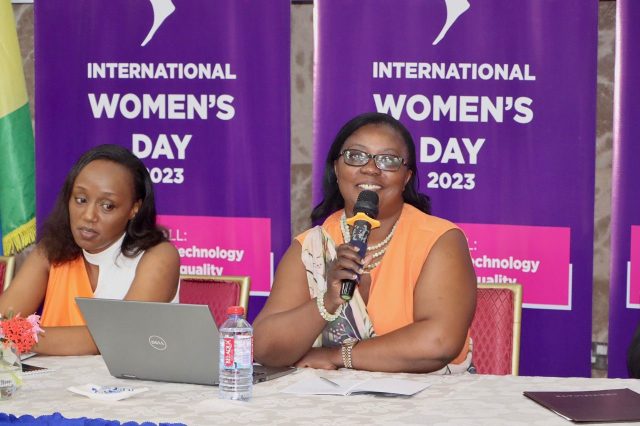The Rwandan communities in Ghana and Benin have joined Rwandans and the global community to celebrate the International Women’s Day, which is marked every 8th March. The month of March has over several years been designated a women empowerment month, with many activities targetting promotion of gender equality ongoing throughout the month.
In Ghana, the event brought together women and girls who are working and studying in the country with their male counterparts into in-depth discussions on this year’s theme ‘DigitALL: Innovation and Technology for Gender Equality’.
They recognised and paid tribute to Rwanda’s leadership, particularly President Paul Kagame, for the country’s gains in promoting equality, underscoring all the laws, policies and strong political will for women empowerment.
Delivering a presentation on Rwanda’s journey in gender equality and women empowerment as well as the role that technology can play in facilitating these endeavours, Josephine Mukakalisa, who is the Country Director of Right to Play in Ghana, emphasised that Rwanda’s good leadership has been the cornerstone for transforming conditions for women and girls.
“Our leadership is concerned about all Rwandans, and hence, women’s empowerment does not happen in exclusion of men, but instead looks at the entire family, ensuring that women’s empowerment builds the entire family and country.”
Some of the major highlights of the presentation included the fact that Rwanda has made gender-based violence taboo, women have been given access to platforms to share their views and gain access to higher social and political leadership positions, as well as that the girl-child’s education has been promoted, increasing their numbers in schools and in various professional fields. Mukakalisa also paid homage to Rwanda’s Land Management Law and policy which have given women rights to own and inherit land – which was not the case less than three decades ago.

The event also heard testimonies from women of varying ages on how Rwanda’s good environment has facilitated them to achieve more professionally and academically.
One of them, Juru Marie Eglantine, who is the Quality Assurance Coordinator at the Association of African Universities, noted that the political change that ushered in support to women facilitated change of mindset in the larger community, which has enabled the girl-child to pursue education and excel in careers.
In Cotonou, Benin, members of the community similarly celebrated, and like their counterparts in Ghana, paid tribute to the leadership of President Kagame, acknowledging the role that Rwanda’s good politics has played in empowering the country’s women and bringing about the national transformation enjoyed today.
In her remarks to the community, the Chairperson of the Rwandan Community in Benin, Febronie Akimabera, encouraged them to stay connected to the innovation and technology progress and always work hard to always learn new developments in their various fields so that they are always ahead.
She also cautioned on the possible negative impacts of technology, citing information and communication technologies – including social media; notably, overusing and becoming addicted to them.
“I am sure that for us as Rwandans living in Benin, we will effectively use the benefits of technology, such as the eased access to information and connectivity to do more business and engage positively,” Akimabera said.
In his message at the event in Ghana, the Second Counsellor at the Rwandan High Commission in Ghana, Theophile Rurangwa, committed the leadership’s readiness to continue supporting women’s initiatives and encouraged women and girls to be bold to use the spaces and opportunities that have been made available to them.
The Rwandan High Commission resident in Ghana covers six countries in the region, including Benin, Ghana, Togo, Ivory Coast, Sierra Leone and Liberia.







![[VIDEO] Agya Koo celebrates like Cristiano Ronaldo after scoring penalty](https://ghananewss.com/storage/2023/02/BeFunky-collage-2023-02-17T164545.706-scaled-100x75.jpg)









